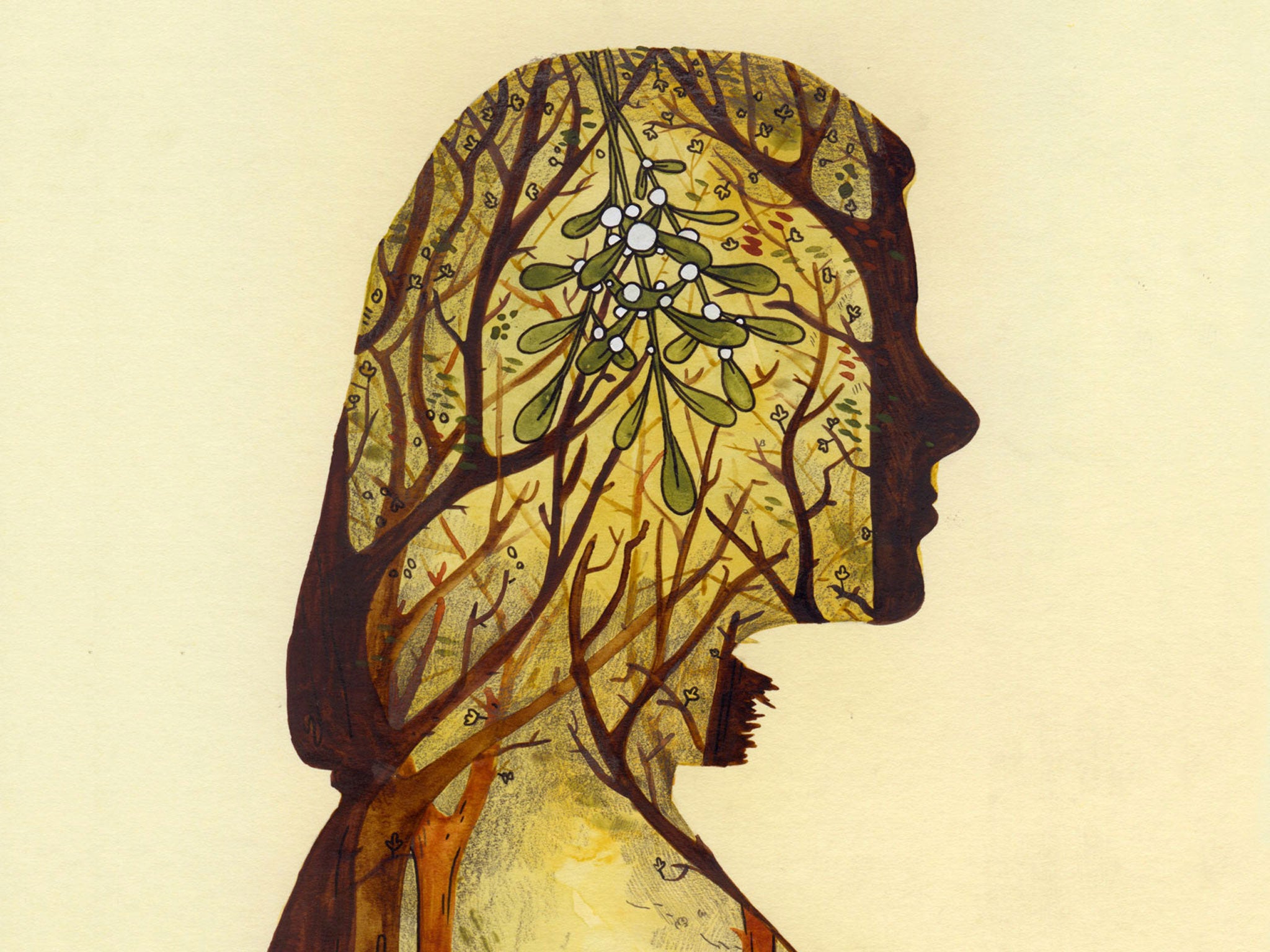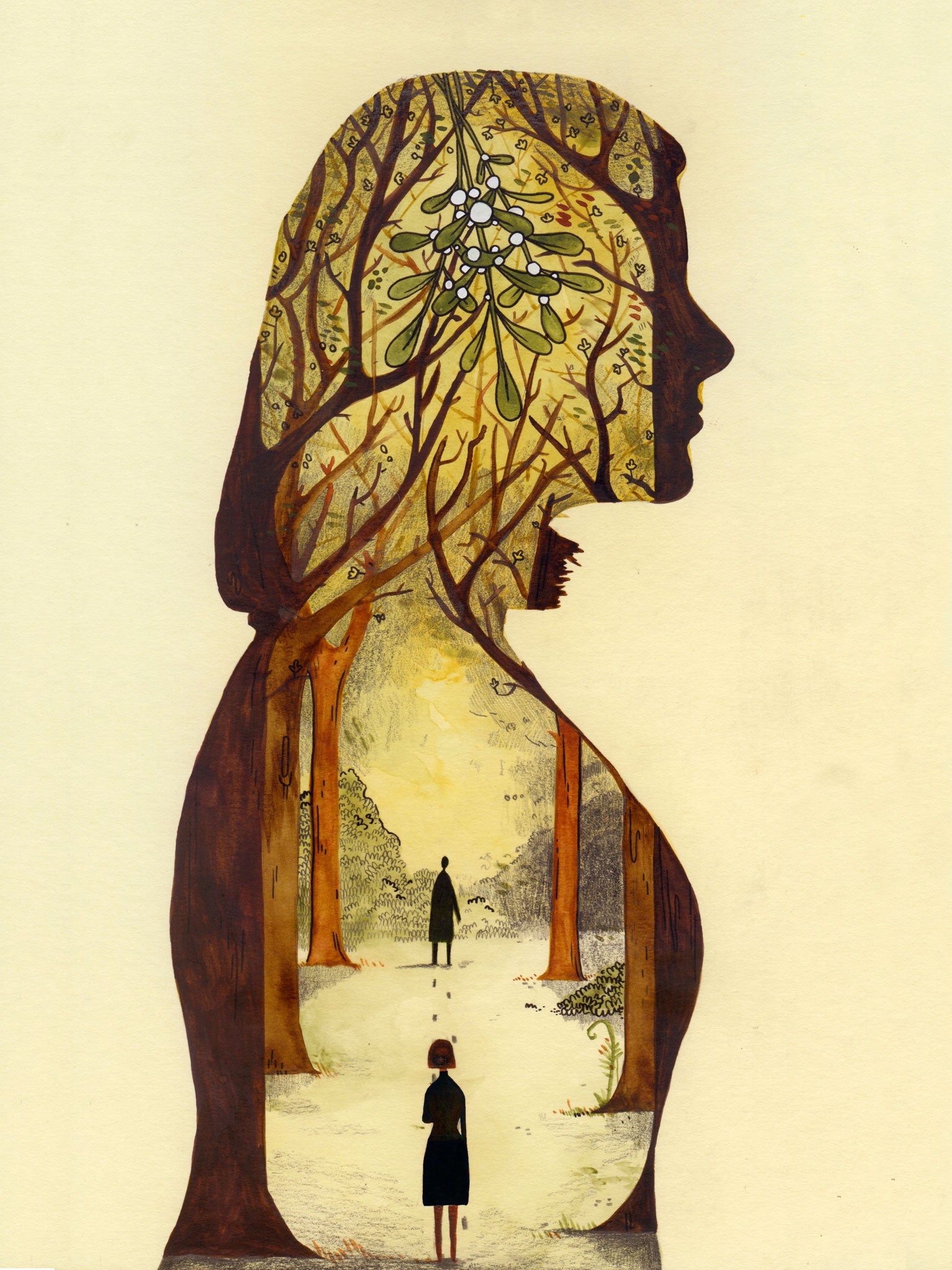Marcus Sedgwick's festive short story - part 2: When the sun stands still
Marcus Sedgwick concludes his festive short story, a tale of a mysterious disappearance on the shortest day of the year

Your support helps us to tell the story
From reproductive rights to climate change to Big Tech, The Independent is on the ground when the story is developing. Whether it's investigating the financials of Elon Musk's pro-Trump PAC or producing our latest documentary, 'The A Word', which shines a light on the American women fighting for reproductive rights, we know how important it is to parse out the facts from the messaging.
At such a critical moment in US history, we need reporters on the ground. Your donation allows us to keep sending journalists to speak to both sides of the story.
The Independent is trusted by Americans across the entire political spectrum. And unlike many other quality news outlets, we choose not to lock Americans out of our reporting and analysis with paywalls. We believe quality journalism should be available to everyone, paid for by those who can afford it.
Your support makes all the difference.The story so far: After struggling to write a short story for the Christmas Eve edition of his newspaper, frustrated author Gawain hurriedly leaves the office party – and the unrequited object of his affections, Gwen – only to stumble drunkenly upon a stranger down a dark alleyway. There, he is transfixed by the ancient rituals of the winter solstice – a time when new beginnings are possible. Gawain is on the threshold of a great forest, and realises that the stranger beckoning him in is his older self...
Without even wiping its feet, Christmas came, and went.
Gwen paid a 36-hour visit to the place called, in her heart, home. She exchanged presents that she had spent hours hunting out and worrying over. She ate food, she drank what her parents termed champagne, they watched films. It was time to leave.
Now she was in the place her mind called home. Having won the annual argument at work about who gets to take leave between Christmas and New Year, she found herself in her flat once more, texting friends with vague plans to go out. So far, it hadn't happened.
Time passed, just.
Things got cleaned, despite the fact that she didn't get out of bed before 10, or even 11. She padded round in pyjama bottoms, a T-shirt and some soft, fluffy socks her sister had given her. She watched more films, started drinking at five, and kept trying to press away a nagging feeling that threatened to overwhelm her. She succeeded for a time, but it was insistent, this unnameable feeling, and every time she pushed it down, it would rise up once more.
Finally, with nothing else to do, she leafed through the Christmas Eve edition of the paper, an edition she had picked up but not yet read.
It was strange how Gawain had written his ghost story after all. She knew for a fact that he hadn't started it at lunchtime on Monday, because she had overheard him telling someone so. It was less strange that he hadn't been seen since he left The Nutshell just before midnight, because it'd been clear to everyone that he was very, very drunk. It was a reasonable assumption that he would have phoned in sick if only he weren't still sleeping off his hangover, and not even so surprising when he failed to show up for work the day after that. Then it was Christmas Eve and no one was too worried about anything other than getting out of the office as soon as the editor would let them.
Yet word had got around, even to Gwen, far from the office, that an email dated six o'clock in the morning on the 22nd had arrived from Gawain's private account bearing the simple declaration of Happy New Year (spelt very badly: happi neue yer or some such) and an attachment: 3,000 words that he had somehow produced between staggering out of the pub and sunrise the next morning.
As she settled into her sofa with a mug of chocolate and the paper, she was thinking about Gawain. She cringed as she remembered that time in the lift. He'd mentioned he was writing a book, a dream she herself held. Rather than ask him about it, she'd emitted that anxious laugh of hers, something she'd had since girlhood that she had never been able to rid herself of. She felt idiotic, especially since this was the 21st century and girls like her were supposed to be able to ask boys like him out on dates, if they so wished.
And she did wish, though she never quite knew how to begin. She'd seen him looking at her in some way she could never quite make out, which could have been lust and could have been distaste. Then, on the night of the party, she'd made up her mind to talk to him, but had got herself trapped by the features editor; appalled by the thought of telling her boss to back off, she had started giggling again. Sometimes, she really detested herself, and this was one of those times.
The problem was, she had much too much time to think in these days, these empty days between the so-called highlights of Christmas and New Year. She'd always found them odd, like dead days that meant nothing, adjacent to time, stuck on to the rest of the year. And now she was unable to suppress the insistent feeling inside; the truth was, these days scared her, though she wasn't sure why.
Trying to push all these thoughts away, she read Gawain's story. It was odd. When she finished it, she read it again, and found it to be no less odd. It was clearly a riff on A Christmas Carol, but the similarities were no more than structural. Otherwise, it was a weird tale set in some unspecified past, but around midwinter, for sure. She marvelled that the editor had let it run at all; it can only have been a lack of anything to go in its place. The oddest thing of all, however, was that it spoke of the same gaping fear which had just been running through Gwen's mind; the empty terror of these dead days.
Next to the story, a sidebar, clearly written to assist the confused reader, informed her that she was not the first one to have this feeling. The interrelation between the sun and the spinning, tipping Earth's journey around it is a messy one; calendars are never perfect. Even ancients such as the Aztecs and the Egyptians had realised that their neat calendars would work only if they stuck an extra five days in somewhere, and even then they needed to insert the occasional extra day or so to keep everything running to order.
She read Gawain's story for a third time, and now she was struck by the feeling it was trying to tell her something. In fact, she had the feeling that it was written especially for her, and no one else.
New Year approached. She went out. She saw friends. She had drinks. She forced herself to stay out till midnight, at which point a leering man tried to kiss her, waving a drunken hand at the mistletoe wilting from the ceiling of the bar.
She went home, thinking about Gawain's story again. It wasn't just the mistletoe; there were other things, too: trees and candles and gifts and food, all pale versions of their forgotten past. But more than anything else, kissing under mistletoe seemed to speak of times long past.
The story was set in a time long ago, when, at the dawning of the new solar year, all manner of rules could be broken. In Gawain's story, a beggar had kissed a queen, something permissible only when the sun appeared to stand still in the heavens, at the sunstead, the solstice, as the shortest day of the year came and went once more. It was then that people worshipped the coming of the new; the rebirth of the sun.

All these things were tumbling through Gwen's head as she made her way home – but one line in the story returned to her, again and again.
It was at this time of year, Gawain had written, that a person might decide to become someone new.
Eagerly, therefore, Gwen made her way to work for the first time in the new year, wanting to see Gawain, determined to ask him about his strange story.
But before she even heard about him, she knew something was wrong; his desk looked just as it had before Christmas, on the 21st. She was told that he had not reported for work. He was due in during Christmas week; he had not appeared. In fact, it seemed he had disappeared. Maybe he was ill, Gwen suggested, but someone had been to his flat and there had been no reply.
The mystery of Gawain's disappearance was all anyone spoke about. For a moment. A moment that lasted a month and was then forgotten.
Days, weeks, months passed, rapidly. Gwen avoided the clumsy advances of her editor, and grew to hate him, but underneath she knew that what she really hated was her life as it was. She was afraid of those empty days because they revealed her life, and she had found it wanting. It had taken a year, but so what? There was still time, perhaps, to put things right, which was how, a few days before Christmas, she came to stand at the window of the office, looking down into the square.
Behind her, the features editor called out. "Gwen. Story. A chat."
She did not reply. She simply put on her coat and walked out of the office and made her way down into the square. There, among the thrum of the city, the bustling people and the humming traffic, was a centre of stillness. There, a young man in a dirty green anorak stood by the entrance to an alleyway, one she didn't recall seeing before.
She smiled at him, kissed him once.
"Happy New Year," he said.
Then they turned towards the alley and, holding hands, walked out of sight.
© Marcus Sedgwick
Join our commenting forum
Join thought-provoking conversations, follow other Independent readers and see their replies
Comments